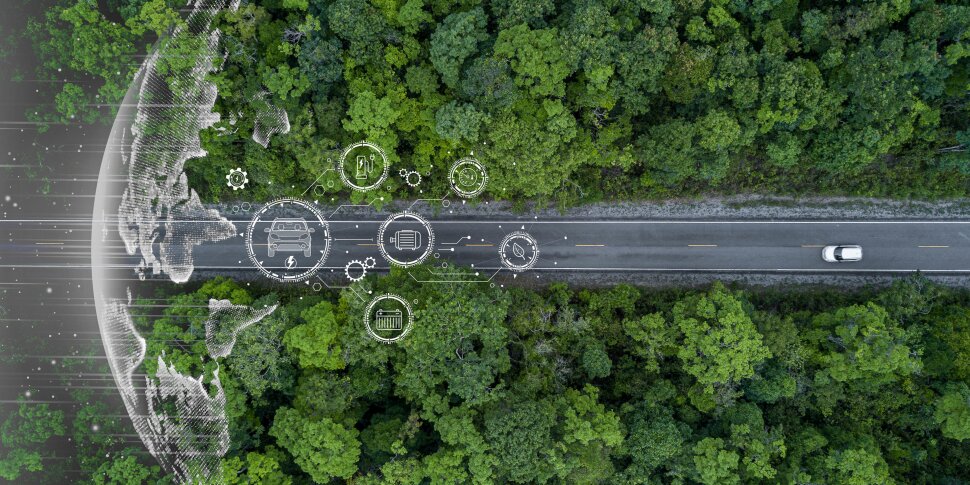Community Participation Process for the Sustainable Business Development of Local Wisdom Learning Centers
Downloads
Doi:10.28991/HEF-2024-05-04-09
Full Text:PDF
Downloads
Ninlawan, G. (2015). Factors Which Affect Teachers' Professional Development in Teaching Innovation and Educational Technology in the 21st Century under the Bureau of Special Education, Office of the Basic Education Commission. Procedia - Social and Behavioral Sciences, 197, 1732–1735. doi:10.1016/j.sbspro.2015.07.228.
Sungsri, S. (2001). Lifelong education for Thai society in the 21st century. Office of National Education Commission, Bangkok, Thailand (in Thai).
Kijsirikul, B., & Ussivakul, N. (2002). Multiclass support vector machines using adaptive directed acyclic graph. Proceedings of the International Joint Conference on Neural Networks 980–985. doi:10.1109/ijcnn.2002.1005608.
Russell, D. W. (2008). Nostalgic tourism. Journal of Travel and Tourism Marketing, 25(2), 103–116. doi:10.1080/10548400802402271.
Siricharoen, T., & Sriplang, N. (2017). The designing of cultural-based tourism route of Thai-Lom lifestyles "Thai route of Thai-Lom lifestyles” Thai Lom – a quiet and charming town. Proceedings of the 4th Phetchabun Rajabhat University National Conference, 472-480.
Boonprasert, U. (1978). A Comprehensive Model for Higher Education Institutional Planning: The Case Of Chulalongkorn University, Thailand. University of Pittsburgh, Pennsylvania, United States.
Robinson, M., & Picard, D. (2011). Tourism, Culture and Sustainable Development. UNESCO, CLT/CPD/CAD-06/13.
Witchayakawin, P. (2018). Hospitality and Tourism Impact in Koh Yao Yai , Pang-Nga , Thailand Toward Perspective of Tourists and Locals. Journal of Management Science Chiangrai Rajabhat University, 13(2), 125–138.
Meenapha, A., & Manthachitra, V. (2023). The species and abundance of coral reef fish at Yao islands , Phang Nga The species and abundance of coral reef fish at Yao islands , Phang. Ramkhamhaeng International Journal of Science and Technology, 6(May), 12–21.
Jitpakdee, R., & Thapa, G. B. (2012). Sustainability Analysis of Ecotourism on Yao Noi Island, Thailand. Asia Pacific Journal of Tourism Research, 17(3), 301–325. doi:10.1080/10941665.2011.628328.
Polnyotee, M., & Thadaniti, S. (2015). Community-based tourism: A strategy for sustainable tourism development of Patong Beach, Phuket Island, Thailand. Asian Social Science, 11(27), 90–98. doi:10.5539/ass.v11n27p90.
Chatkaewnapanon, Y., & Lee, T. J. (2022). Planning Sustainable Community-Based Tourism in the Context of Thailand: Community, Development, and the Foresight Tools. Sustainability (Switzerland), 14(12), 7413. doi:10.3390/su14127413.
Yue, S., Munir, I. U., Hyder, S., Nassani, A. A., Qazi Abro, M. M., & Zaman, K. (2020). Sustainable food production, forest biodiversity and mineral pricing: Interconnected global issues. Resources Policy, 65, 101583. doi:10.1016/j.resourpol.2020.101583.
DLA. (2023). Thailand 4.0. Department of Local Administration, Bangkok, Thailand. Available online: https://www.dla.go.th/en/o1.jsp (accessed on November 2024).
Cohen, J. M., & Uphoff, N. T. (1980). Participation's place in rural development: Seeking clarity through specificity. World Development, 8(3), 213–235. doi:10.1016/0305-750X(80)90011-X.
Molale, T., & Fourie, L. (2023). A six-step framework for participatory communication and institutionalised participation in South Africa's municipal IDP processes. Development in Practice, 33(6), 675–686. doi:10.1080/09614524.2022.2104810.
Phuangngam, K. (2010). Community and Local Self-Government. Bopit Printing, Bangkok, Thailand (In Thai).
Apinya, K. (2001). A participatory management model in faculty-level organizational effectiveness of higher education institutions. Chulalongkorn University, Bangkok, Thailand.
OPDC. (2017). Office of the Public Sector Development Commission, OPDC, Bangkok, Thailand. Available online: https://www.opdc.go.th/ (accessed on November 2024).
Ahanchian, A. H., Huntington, S. P., Nelson, J. M., Bruhns, F. C., Cazzola, F., & Wiatr, J. (1978). No Easy Choice, Political Participation in Developing Countries. The Western Political Quarterly, 31(1), 136-137. doi:10.2307/447319.
Ratana-Ubol, A., & Henschke, J. (2015). Cultural Learning Processes through Local Wisdom: A Case Study on Adult and Lifelong Learning in Thailand. International Journal of Adult Vocational Education and Technology, 6(2), 41–60.
Strohschen, G. (2010). Teaching adults across cultures, distance, and learning preferences: Universal tools for the 21st century. Encyclopedia of Information Communication Technologies and Adult Education Integration, 469–484. doi:10.4018/978-1-61692-906-0.ch028.
Kandil, S. (2016). Public participation guide: Introduction to public participation. US Environmental Protection Agency, Washington, D.C., United States. Available online: https://www.epa.gov/international-cooperation/public-participation-guide-introduction-public-participation (accessed on November 2024).
The World Bank (1996). The World Bank participation sourcebook (English). The World Bank, Washington, D.C., United States. Available online: http://documents.worldbank.org/curated/en/289471468741587739/The-World-Bank-participation-sourcebook (accessed on November 2024).
Cohen, J. M., & Uphoff, N. T. (1977). Rural Development Participation: Concepts and Measures for Project Design, Implementation, and Evaluation. Monograph Series, Rural Development Committee, Cornell University, No. 2, 317.
Manring, R. B. (1972). Perceptions of students, teachers, principals, and parents toward the need for change and innovation in the secondary schools of the United States Dependents Schools, European area. University of Southern California, California, United States.
Pathak, S., & Ahmad, M. M. (2018). Role of government in flood disaster recovery for SMEs in Pathumthani province, Thailand. Natural Hazards, 93(2), 957–966. doi:10.1007/s11069-018-3335-7.
Rohimah, R. B., Mahfud, M., Arifudin, O., & Sarkawi, S. (2024). Madrasah'S Contribution To the Empowerment of the Village Community in Indonesia. International Journal of Teaching and Learning, 2(4), 1088–1101.
Smitananda, P., & Akahat, N. (2024). Digital Technology Policy Initiation of Local Administrative Organizations: the Lessons of Smart City Development in Thailand. SSRN Electronic Journal, 7(1), 64-76. doi:10.2139/ssrn.4764591.
Holum, M. (2023). Citizen participation: Linking government efforts, actual participation, and trust in local politicians. International Journal of Public Administration, 46(13), 915-925. doi:10.1080/01900692.2022.2048667.
Faiboun, N., Klungboonkrong, P., Udomsri, R., & Jaensirisak, S. (2024). Empowering Urban Public Transport Planning Process for Medium-Sized Cities in Developing Countries: Innovative Decision Support Framework for Sustainability. Sustainability (Switzerland) , 16(11), 4731. doi:10.3390/su16114731.
Kraiwatanapong, V., & Akarapattananukul, Y. (2024). Networked Governance in Transnational Cooperation and Politics: Responding to COVID-19 Pandemic Along Thai-Laos Cross-Border Communities. Journal of Population and Social Studies, 32, 223–242. doi:10.25133/JPSSv322024.014.
Cheunduang, T., Mangkhang, C., & Saenbutr, S. (2023). Cultural Restoration Participatory Learning Process on The Poetry to Promote Environmental Sustainability Conservation of Ethnic Students, Chiang Mai Province. Higher Education Studies, 14(1), 1. doi:10.5539/hes.v14n1p1.
Pranee, S., Eaknarajindawat, N., Aeknarajindawut, N., Pulphon, S., & Suwannapirom, C. (2024). Sustainable economic development through strategic planning, environmental sustainability, innovation, and learning in community enterprises: evidence from Ranong Province, Thailand. F1000Research, 13, 86. doi:10.12688/f1000research.135512.1.
- The authors retain all copyrights. It is noticeable that authors will not be forced to sign any copyright transfer agreements.
- This work (including HTML and PDF Files) is licensed under a Creative Commons Attribution 4.0 International License.















